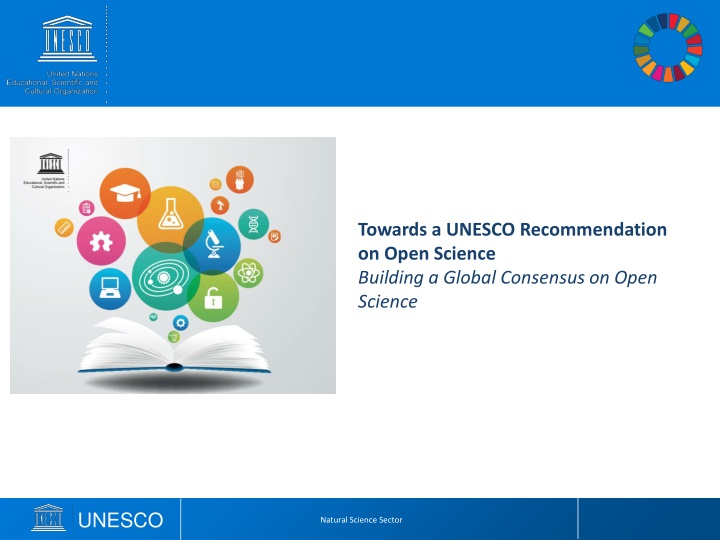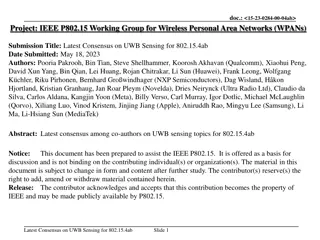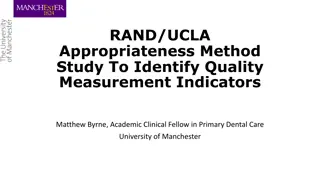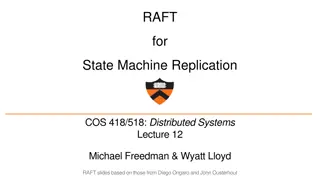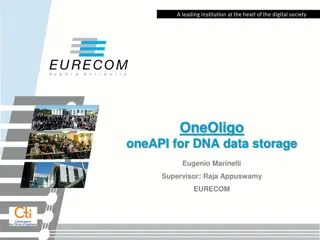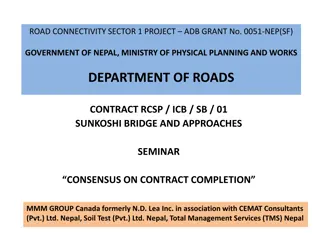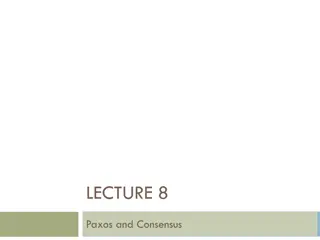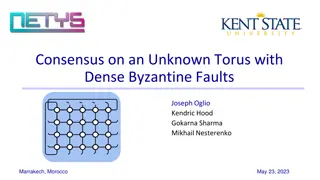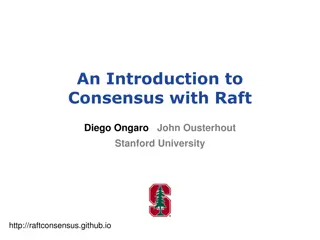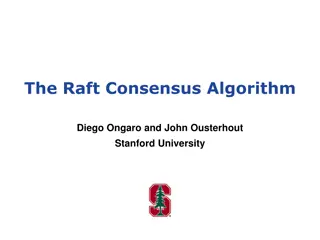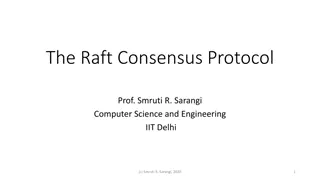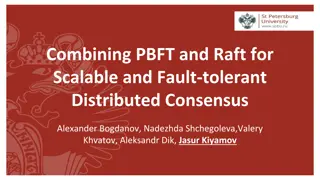Building Global Consensus on Open Science
Towards a UNESCO Recommendation on Open Science. Importance of science, technology, and innovation. Democratizing science for sustainable goals. UNESCO's drafting process for Open Science Recommendation and current draft details.
Download Presentation

Please find below an Image/Link to download the presentation.
The content on the website is provided AS IS for your information and personal use only. It may not be sold, licensed, or shared on other websites without obtaining consent from the author.If you encounter any issues during the download, it is possible that the publisher has removed the file from their server.
You are allowed to download the files provided on this website for personal or commercial use, subject to the condition that they are used lawfully. All files are the property of their respective owners.
The content on the website is provided AS IS for your information and personal use only. It may not be sold, licensed, or shared on other websites without obtaining consent from the author.
E N D
Presentation Transcript
Towards a UNESCO Recommendation on Open Science Building a Global Consensus on Open Science UNESCO Natural Science Sector
The Need for Science, Technology and Innovation Importance of timely and free access to scientific data, publications, information Importance of scientific collaborations and sharing of information at all levels Importance of science-policy- society dialogue Need for Open Science UNESCO Natural Science Sector
Democratize Science Open the transform and democratize the entire process to science truly drives and enables the achievement of the United Sustainable Goals for the benefits of all. Science movement embodies to scientific ensure that Nations Development UNESCO Natural Science Sector
A global understanding is needed The question is no longer whether Open Science is happening, but rather how everyone can contribute and benefit from the transition. At the UNESCO 40th General Conference, 193 Members States tasked UNESCO with the development of an international standard-setting instrument on Open Science in the form of a UNESCO Recommendation on Open Science. UNESCO 40th Session of the General Conference UNESCO Natural Science Sector
UNESCO Open Science Recommendation Drafting process The first draft was developed by the Open Science Advisory Committee based on the inputs received: from the Advisory Committee Members; from the UNESCO Open Science Partnership; through the UNESCO Global Consultation, held online from February to July 2020 through the thematic and regional consultations on Open Science held since December last The first draft was shared with the UNESCO Member in September 2020 https://unesdoc.unesco.org/ark:/48223/pf0000374409.locale=en.page=10 UNESCO invites feedback on the draft text @ openscience@unesco.org by 31 December UNESCO Natural Science Sector
Current draft of the UNESCO Open Science Recommendation Definition of Open Science Open Science refers to an umbrella concept that combines various movements and practices aiming to: 1 - make scientific knowledge, methods, data and evidence freely available and accessible for everyone, 2 - increase scientific collaborations and sharing of information for the benefits of science and society, and - open the process of scientific knowledge creation and circulation to societal actors beyond the institutionalized scientific community. 3 4 Scientific outputs should be as open as possible, and only as closed as necessary, mindful of the issues relating to security, privacy and respect for subjects of study 5 UNESCO Natural Science Sector
Current draft of the UNESCO Open Science Recommendation Definition of Open Science Open Science is a complex of elements, including: Open Engagement of Societal Actors Open Access 1 Open Data Open Source/Softw are and Open Hardware Openness to Indigenous Knowledge Systems 2 Open Science Openness to Diversity of Knowledge Open Evaluation 3 Openness to all Scholarly Knowledge and Inquiry Open Science Infrastructures Open Educational Resources 4 5 UNESCO Natural Science Sector
Current draft of the UNESCO Open Science Recommendation Open Science Core Values Collective Benefit Quality and Integrity Diversity Inclusiveness 1 Equity and Fairness 2 Guiding Principles 3 Transparency, scrutiny, critique and verifiability Collaboration, participation and inclusion Respect, responsibility and accountability 4 Equal opportunities and access Sustainability Flexibility 5 UNESCO Natural Science Sector
Current draft of the UNESCO Open Science Recommendation Areas of Action 4 1. Promoting a common understanding of OS 2. Developing an enabling policy environment for OS 3. Investing in OS infrastructures and services 4. Investing in capacity building for OS 5. Transforming scientific culture and aligning incentives for OS 6. Promoting innovative approaches for OS at different stages of the scientific process 7. Promoting international cooperation on OS UNESCO Natural Science Sector
Investing in Open Science infrastructures Community-led, interoperable, inclusive, interconnected and sustainable digital infrastructures and computing facilities to ensure long-term preservation, stewardship, and community control of research products. Community agreements should define community practices for data sharing, data formats, metadata standards, ontologies and terminologies, tools and infrastructure. Technical requirements for every digital object of significance for science, whether a datum, a dataset, metadata, code, a publication should also be addressed. Certain core specifications, such as for example the FAIR and CARE principles for data stewardship. UNESCO Natural Science Sector
Investing in Open Science infrastructures Joint strategies for shared, multinational, regional Open Science platforms to provide coordinated support for interoperability from the perspective of policy, practices and technical specifications. Platforms for exchanges and co-creation of knowledge between scientists and society Monitoring and information systems to complement national, regional and global data and information systems. UNESCO Natural Science Sector
